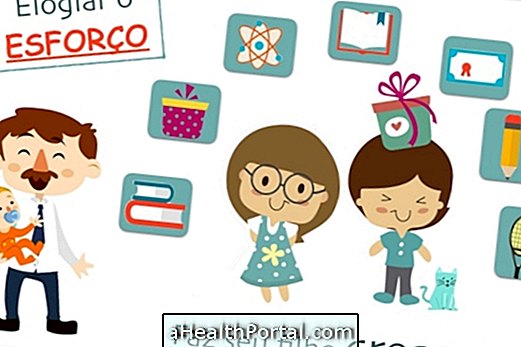It is normal for children to be more timid when faced with new situations and especially when they are with people they do not know. Despite this, not every shy child will be a shy adult.
What parents can do to help their child overcome shyness is to adopt some simple strategies that can achieve good results, such as:
1. Recognize the environment
Bringing the child to the school he / she will attend before school may help reduce anxiety, making the child feel more confident, and has the courage to talk to his or her friends. It's a good idea to enroll the child in the same school as someone you like, such as a neighbor or relative.
2. Talking in the eyes

Eyes in the eyes show confidence and when parents talk to their children always looking in the eyes children tend to repeat this behavior with others.
3. Have patience
It is not only because the child is shy, that she will be a shy adult, what has been observed over the years is that shy children, when they reach the stage of adolescence and youth, tend to loosen up more.
4. Do not keep saying that the child is shy in front of her
When parents have this attitude the child may think that there is something wrong with it and then retract further.
5. Positive reinforcement

Whenever the child loosens up and becomes less shy, value your effort and give a smile, a hug or say something like 'very well'.
6. Do not expose the child to situations she does not like
Forcing a child to dance at school, for example, can increase the anxiety she feels and she may even begin to cry for being ashamed and feeling threatened.
7. Avoid stirring or always involving her
Situations like this can make the child angry and whenever this situation repeats the child will become more and more introverted.
8. Avoid speaking for the child
Parents should avoid responding to children because with this behavior they are not encouraged to overcome their fears and afflictions and gain the courage to speak.
Shyness should not be seen as a defect, however, when it begins to harm the life of the child or adolescent, an appointment with a psychologist may be helpful because this professional has knowledge of specific techniques that can help overcome this difficulty, improving their quality of life.
Some indications that it might be time to look for a psychologist are when the child is constantly alone or has no friends and is always very sad. A good laid-back conversation may help clarify whether the child really needs professional help or is only going through a phase where he or she is more reserved.




















